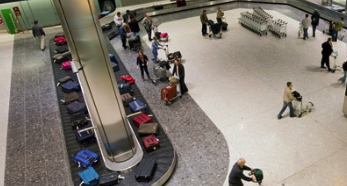The global deployment of Radio Frequency Identification (RFID) technology, which can accurately track passengers’ baggage in real time across key points in the journey, could enable the air transport industry to save more than $3 billion over the next seven years.
The claim is made by Global IT provider SITA and IATA who have calculated that the highly accurate tracking rates of RFID technology could reduce the number of mishandled bags by as much as 25% by 2022, mainly through efficient tracking.
In particular, they say, RFID will address mishandling during transfer from one flight to another by ensuring that airports, airlines, and ground handlers are able to keep track of bags at every step of the journey. The technology supports IATA’s Resolution 753, which requires airlines to track each item of checked baggage, at key points in the journey, by 2018.
According to the SITA/IATA business case, RFID capabilities can be deployed for as little as 10 cents per passenger on average while generating expected savings of more than 20 cents per passenger. With some big airlines and airports have already introducing RFID technology, combined with the fact that it is compatible with existing barcode technology, adoption of RFID across all airports could provide a positive return for airlines, both in cost savings and passenger satisfaction.
SITA’s and IATA's assumptions are based on RFID being deployed in 722 airports (representing 95% of passenger numbers globally) over a six-year period between 2016 and 2021 while the savings are calculated over seven years. The figures for 2016 take into account the RFID infrastructure already deployed or about to be deployed at multiple induction points on the baggage journey.

